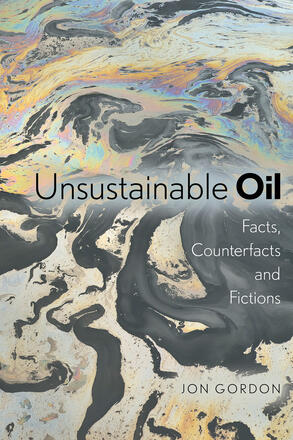
Unsustainable Oil
Facts, Counterfacts and Fictions
Description
Bitumen extraction is the lifeblood of Alberta, and there are many stories about the boom-and-bust economy. But what does literature have to say about the “progress” of petroculture? Jon Gordon maps out a new field of study by examining the relationship between culture and energy extraction, moving towards nuance and away from the entrenched rhetorical positions that currently dominate discussion. His examination of theoretical, political, and environmental issues in this ground-breaking book contribute to our understanding of the culture and the ethics of energy production in the Canadian context.
Reviews
"Unsustainable Oil deserves to be read alongside other excoriations of Alberta's great speculative game, such as Tar Sands: Dirty Oil and the Future of a Continent (2008) by Canadian journalist Andrew Nikiforuk, and studies in the emergent field of petrocriticism, such as Stephanie LeMenager's Living Oil: Petroleum Culture in the American Century (2014). Oil, with its climate consequences, is a defining environmental concern of our age: it has found an impassioned critic in Jon Gordon. " , Western American Literature 52. 2, 2017
- Nicholas Bradley
"In 1959 Alberta approved a berserk scheme to set off an atomic blast at Fort McMurray, liquefying the oil sands and freeing a trillion barrels of riches. Engineers with U. S.-based Richfield Oil Corp. rated it a 50-50 chance of economic success. Then-Prime Minister John Diefenbaker killed the idea. 'Certainly not,' he said. ... Gordon is a talented writer. Unsustainable Oil profiles the Alberta sands as a phenomenon both cursed and celebrated in art and commerce and media. ... Unsustainable Oil is pungent and funny and eloquent. It profiles oil sands as a cultural happening that’s driven Canadians to polar opposites. It works. "
- Holly Doan
Gordon’s agenda is to short-circuit the extremely polarized debate between team oil and team environment by bringing into play not facts and counterfacts alone but the power of narrative, storytelling, theatre, theory, even poetry. ... The book is theoretically astute, Gordon’s writing throughout is crystal clear and elegant, and his analysis of texts insightful: this book is an exhilarating and beautiful read. The Goose 2017: Vol. 16 : Iss. 1, Article 4. [Full review at: http://scholars. wlu. ca/thegoose/vol16/iss1/4]
- Pamela Banting
"[Gordon] proposes that we turn to works of literature (plays, poetry, short stories) as a means of re-imagining the narratives that we tell ourselves about our embeddedness in petroculture. ... [He demonstrates] that literature performs not only a necessary diagnostic function (namely, to articulate the environmental and social costs of our dependence on bitumen), but also a vital prognostic function, through which we can begin to restore our understanding of the intimate relations between humans and their environment, and our hope for a post-bitumen future". Canadian Literature, Spring/Summer 2016. [Full review at https://canlit. ca/article/creativecollective-resistance]
- Lucia Lorenzi
"At the heart of Gordon’s analysis is the argument that literature performs a ‘downward counterfactual function’—that is to say, that it exposes the grim realities of bitumen extraction—but that in doing so, it also reaffirms the possibilities for other types of futures…. Environmental work is difficult work. It is difficult because of the ways it often conflicts with and runs up against corporate and/or academic interests, and difficult because it must engage with a crisis whose effects are both currently unfolding and as of yet unforetold. Both Unsustainable Oil: Facts, Counterfacts, and Fictions and Sustaining the West: Cultural Responses to Canadian Environments take on this challenging work, and in doing so, demonstrate that a rich critical and creative network of humanities-based artists and critics is integral to both eco-critical conversation and ecological action. ” Lucia Lorenzi, Canadian Literature, March 2017
- Lucia Lorenzi